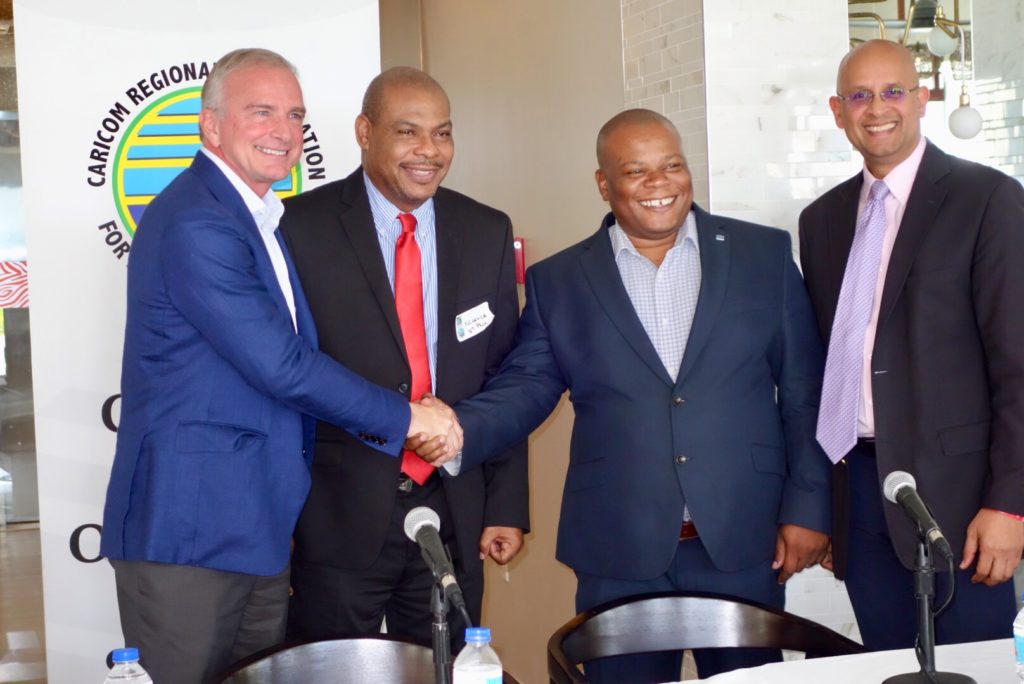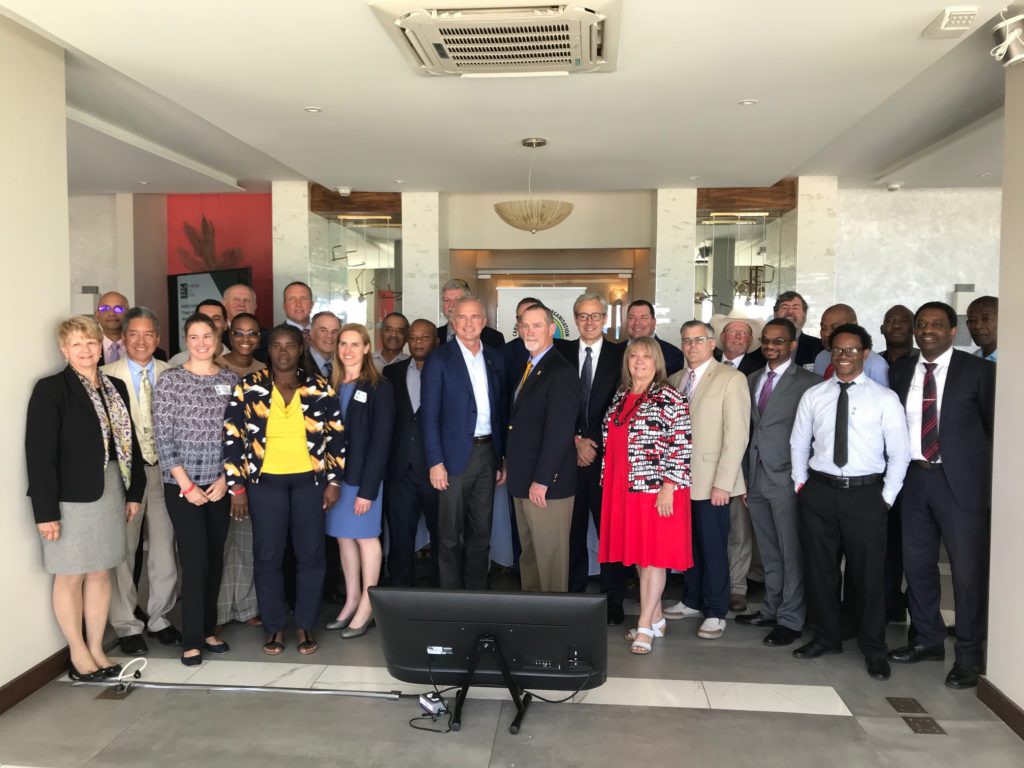

For Immediate Release: December 12, 2019
International Code Council engages Caribbean leaders in resilience initiatives
Workshop in Barbados brings together construction standards developers, implementers and financing agencies to promote resilience through the implementation of modern building codes
Washington, D.C. – The International Code Council and the Caribbean Community (CARICOM) Regional Organization for Standards & Quality (CROSQ) hosted a workshop in Christ Church, Barbados, for stakeholders involved in the development, adoption and implementation of building codes and standards throughout the Caribbean. The workshop, entitled “Building Resilient Communities Through Implementing Modern Building Codes,” also included financial institutions focused on improving the resilience of buildings and homes in the region in preparation for natural disasters.

The workshop, held on December 6, celebrated the publication of the CARICOM Regional Energy Efficiency Building Code, which was adapted from the International Energy Conservation Code by CROSQ and published by the Code Council. The CROSQ-led creation of the regional code involved the bureaus of standards from all 15 CARICOM member states, many of which are now working to adopt the code through their national administrative and legislative processes. Stakeholders recognize that the creation of a regional code is a first step in a long process that will continue to require significant commitment throughout the implementation and enforcement process.
Organizations participating in the workshop included the Barbados National Housing Corporation, Barbados National Standards Authority, St. Lucia Bureau of Standards, Caribbean Development Bank, Inter-American Development Bank, World Bank, the German development agency GIZ, ASTM International, ASHRAE and members of professional engineering and architecture societies from several Caribbean nations. The Code Council Board of Directors also attended the workshop and shared best practices and insights gained in successfully implementing advanced building codes, especially in the wake of severe natural disasters impacting the United States.

“The Code Council is committed to working with CROSQ and our partners in the region to achieve a safer and more resilient built environment,” said Code Council Chief Executive Officer Dominic Sims, CBO. “We have identified the Caribbean as a priority region for our global focus, because we see both the need and the shared opportunity to work regionally to provide cost-effective solutions that will aid with implementation and capacity building in the Caribbean.”
Deryck Omar, CROSQ CEO, emphasized the need to build capacity in the region. “We need to work with the owners and implementers of building codes and standards in our CARICOM member countries to ensure that they have the tools, institutional capabilities and certified practitioners to successfully implement codes and standards that result in safe buildings. The International Code Council, ASTM International and ASHRAE have provided us with great support and resources, and we will continue to draw on their expertise into the next phases of code implementation and enforcement.”
Some funding is already in place from the European Union as being administered via the partnership of the GIZ, CARICOM Energy Programme and the Caribbean Centre for Renewable Energy and Energy Efficiency (CCREEE), as well as the Global Environmental Fund (GEF) sponsored Energy for Sustainable Development Project being administered by the Caribbean Community Climate Change Centre (5Cs). This funding is earmarked specifically to assist with training and certification related to the implementation of the CARICOM Regional Energy Efficiency Building Code, and work will begin in this area in the coming months with CROSQ as the project coordinator and the Code Council providing some attendant code implementation services to CROSQ, and by extension, the region.
Several presenters at the workshop noted the challenges faced in the enforcement of residential building codes and standards in the region. Participants discussed many potential pathways to address these challenges. “Solving the residential building challenge is critical to truly achieving a resilient built environment,” said Code Council Executive Vice President and Head of Business Development Mark Johnson. “We know that investing upfront in compliant, resilient buildings can protect people and property during disasters and save money in the end. Our partners in the region recognize that; however, we still have a challenge communicating that message through the regulatory and enforcement system so that it is embraced by homeowners and home builders.”
The World Bank’s Building Regulation for Resilience Program is focused on reducing disaster risks by promoting a safer, more accessible and sustainable built environment through implementation of standards for safe land use and construction. Thomas Moullier, the global coordinator for the program, presented at the workshop, praising CROSQ’s accomplishment in achieving a regional energy code and recognizing the Code Council’s unique ability to partner with stakeholders in the region to achieve success. “The International Code Council is unlike any other code developing organization that I have encountered in my work across 25 countries,” Moullier noted. “The scope and scale of the organization, the involvement of the private sector in the code development process, and the training and tools for compliance offered through the Code Council’s family of solutions is truly unique in enabling jurisdictions to achieve the last mile in applying the theory of the building code to the practice of construction.”
For more information on the Code Council’s global initiatives, visit https://global.iccsafe.org/ and download 2025 Vision: Strategic Plan for the Future.
###
About the International Code Council
The International Code Council is a nonprofit association that provides a wide range of building safety solutions including product evaluation, accreditation, certification, codification and training. It develops model codes and standards used worldwide to construct safe, sustainable, affordable and resilient structures.



